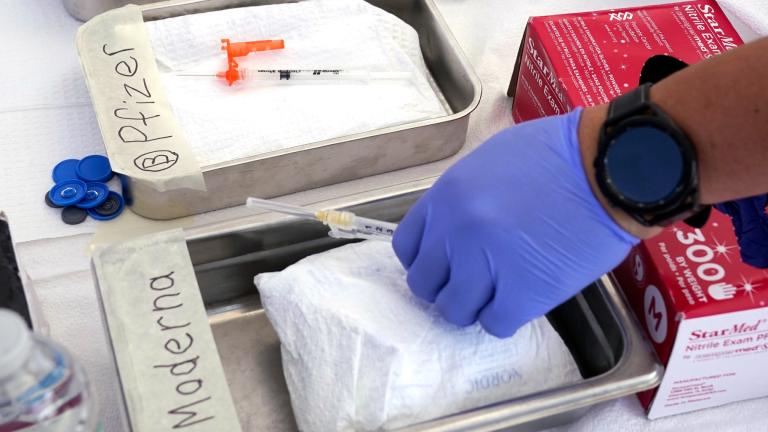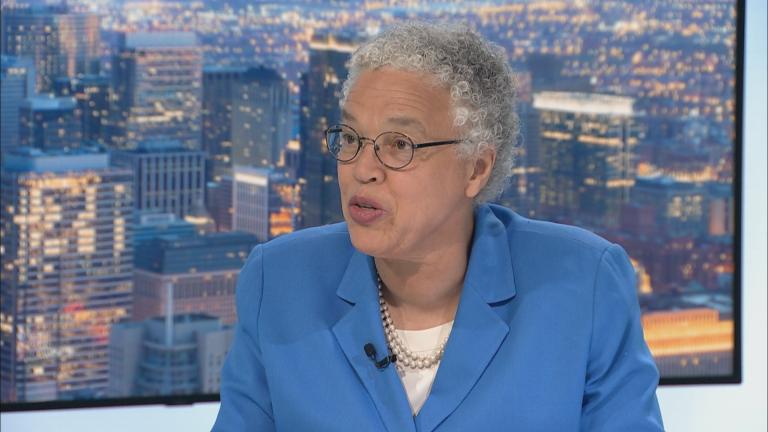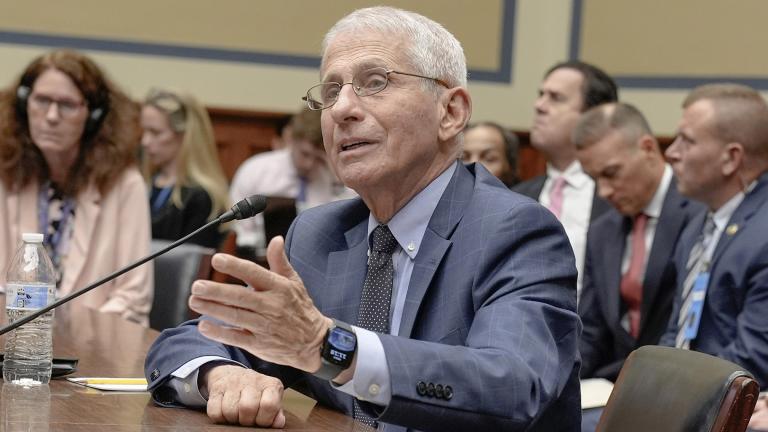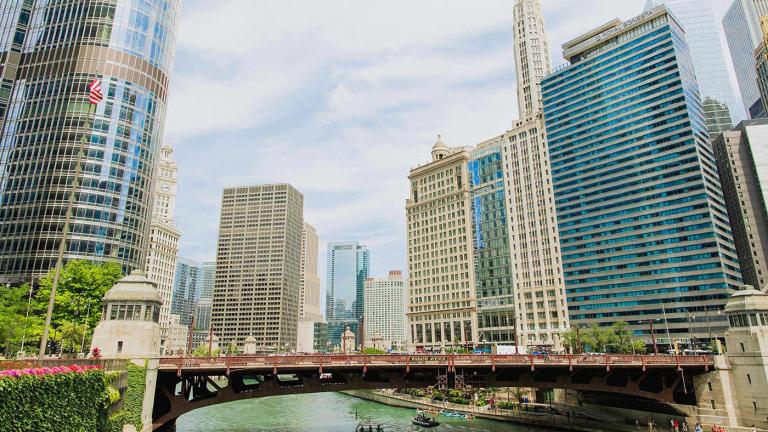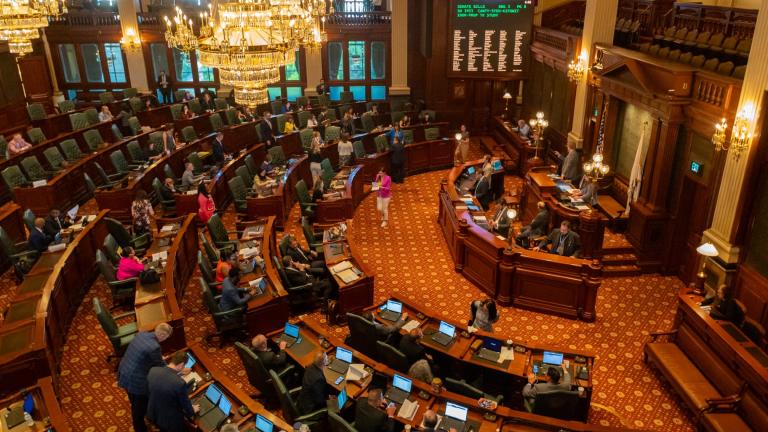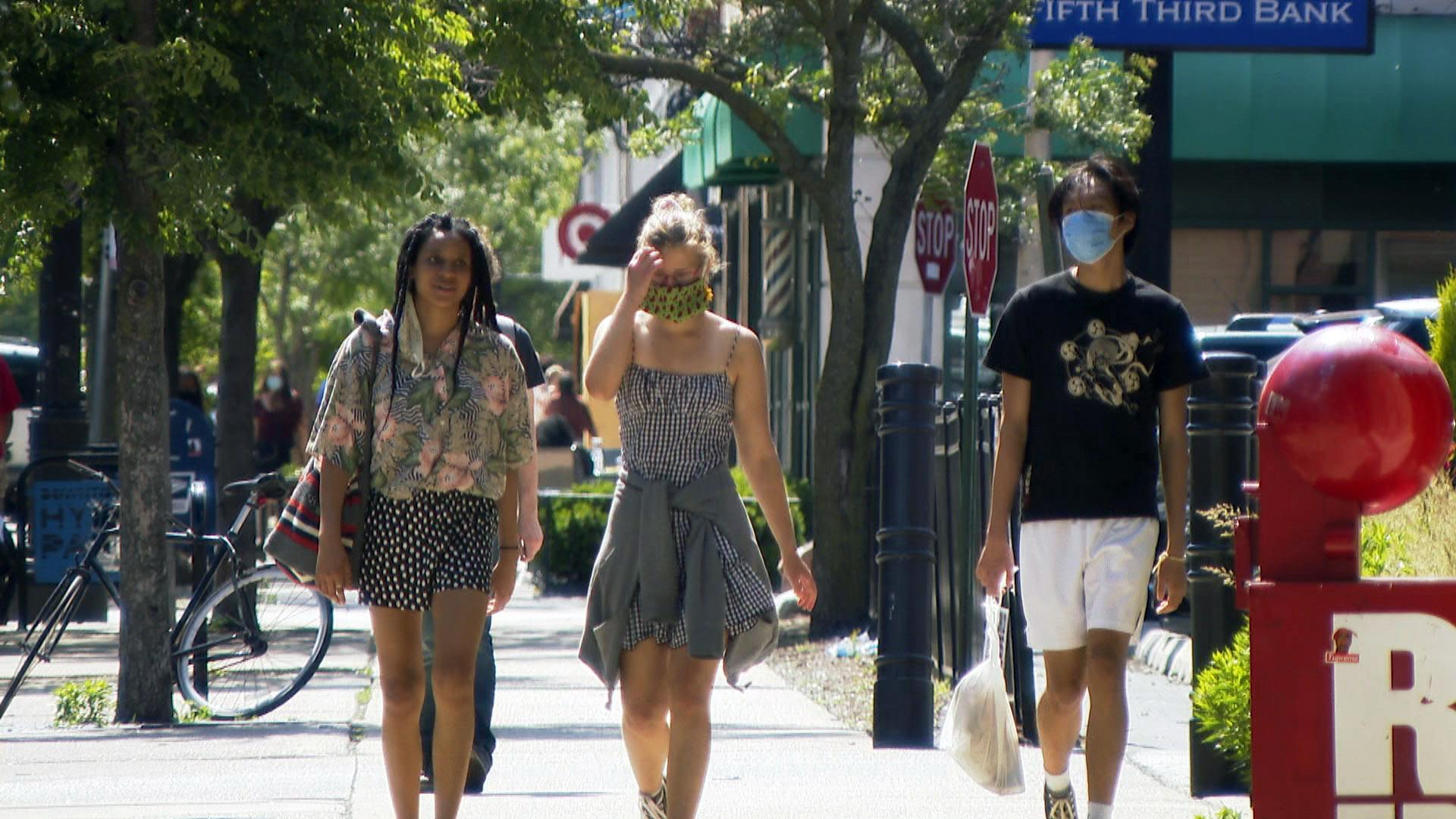 (WTTW News)
(WTTW News)
People who’ve had a COVID-19 infection develop some antibodies to the virus, but it’s unknown how long that immunity lasts. Also unknown is how long immunity lasts for people who have been vaccinated against COVID-19.
Illinois Institute of Technology researchers, along with researchers at universities and medical centers across the country, aim to answer those questions in a nationwide study.
“The overarching goal is to better understand the whole dynamic of this pandemic,” said Indika Edirisinghe, a study investigator and professor of food science and nutrition at Illinois Tech.
Led by Indiana University School of Public Health-Bloomington, the Aegis study is a long-term observational study that will track up to 2,100 people across the country for 12 months. The study will examine COVID-19 infection, reinfection and the duration of immunity to SARS-Cov-2.
“We don’t know how long immunity lasts if you’re vaccinated, and we don’t know how long immunity lasts if you’ve been infected,” Edirisinghe said. “Understanding reinfection is important as we get back to normal life,” especially now that fewer people are wearing masks because of increasing vaccination rates.
Researchers plan to study people who have had a confirmed case of COVID-19 that have since recovered, as well as those who haven’t been infected. Vaccinated individuals are eligible to participate, and Illinois Tech is recruiting participants for the study.
Throughout the study, participants will regularly provide nasal swab testing and blood samples, which will be checked for changes in antibody levels and T-cell responses, as well as inflammatory markers.
Tracking antibody levels among people who have been fully vaccinated will provide important information about COVID-19 vaccines, according to Edirisinghe.
Researchers expect a fully vaccinated individual to have high antibodies against the virus for at least six months, “but we don’t know after eight months, 10 months or 12 months,” he said. “The science is still young. … This study could provide useful information for the scientific community if we see antibody levels dropping significantly over time.”
If the study were to find declining antibody levels, then that might mean a booster shot is warranted, he added.
Since participants will be tested regularly for COVID-19, researchers will be able to track anyone who becomes infected or reinfected with SARS-CoV-2 or one of its variants.
Participants will also complete questionnaires about their day-to-day behaviors related to the pandemic such as mask wearing, grocery store trips and comfort level with traveling by plane.
“It’s very important to understand the psychological part of people,” Edirisinghe said, adding normal lifestyles have been disrupted by the pandemic.
By surveying people over 12 months, researchers will be able to track if and how they modify their behavior, according to Edirisinghe. “We need to understand how people are going to react to this pandemic.”
The study is funded by $15 million in philanthropic investments, including funding from Jack Dorsey’s #StartSmall Initiative, the Chase and Stephanie Coleman Foundation, and an anonymous foundation. All participants will be compensated $375 during the 12-month study.
For more information about the study, visit Illinois Tech’s website.
Contact Kristen Thometz: @kristenthometz | (773) 509-5452 | [email protected]

